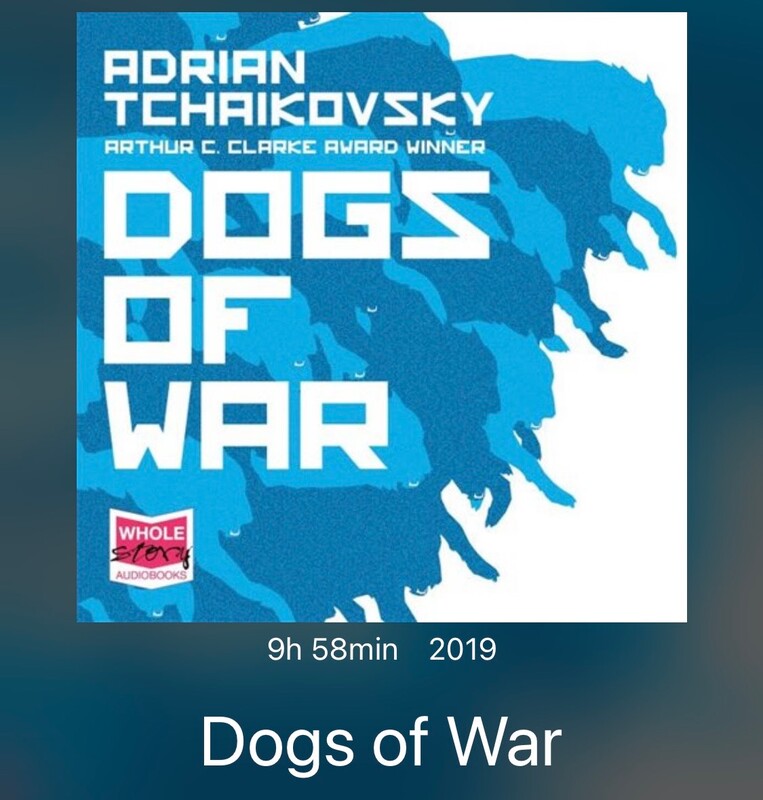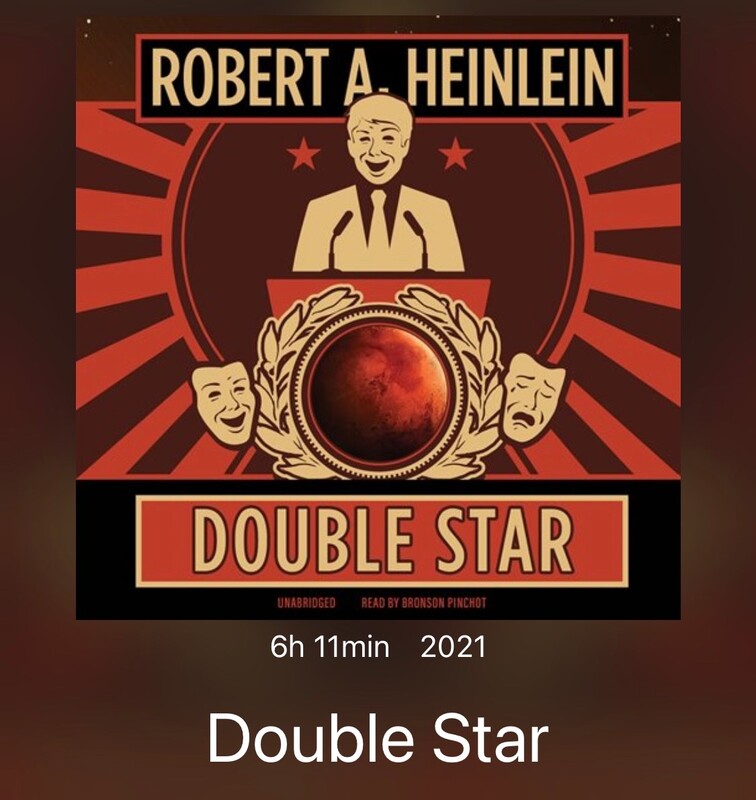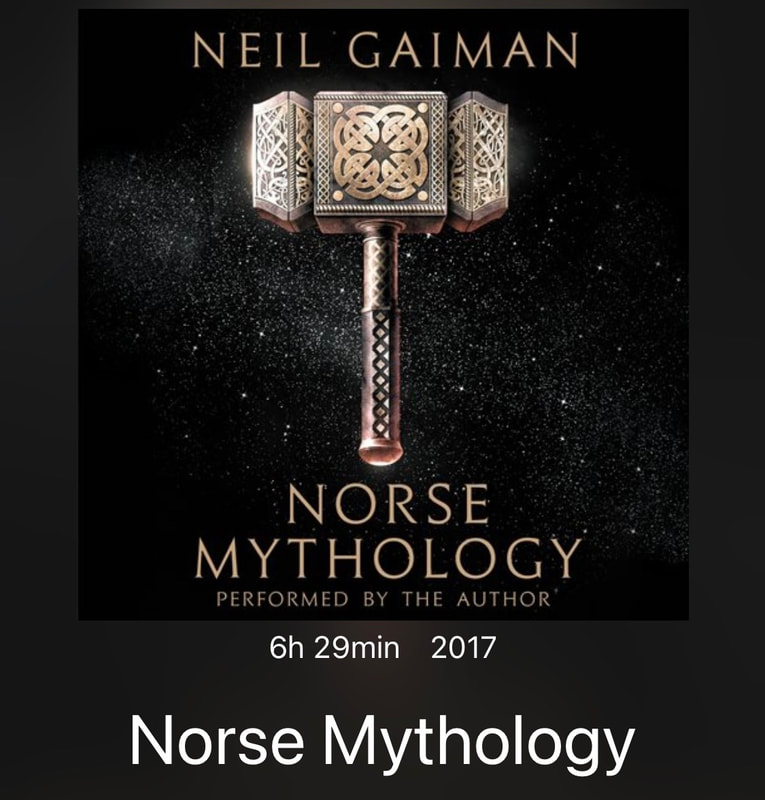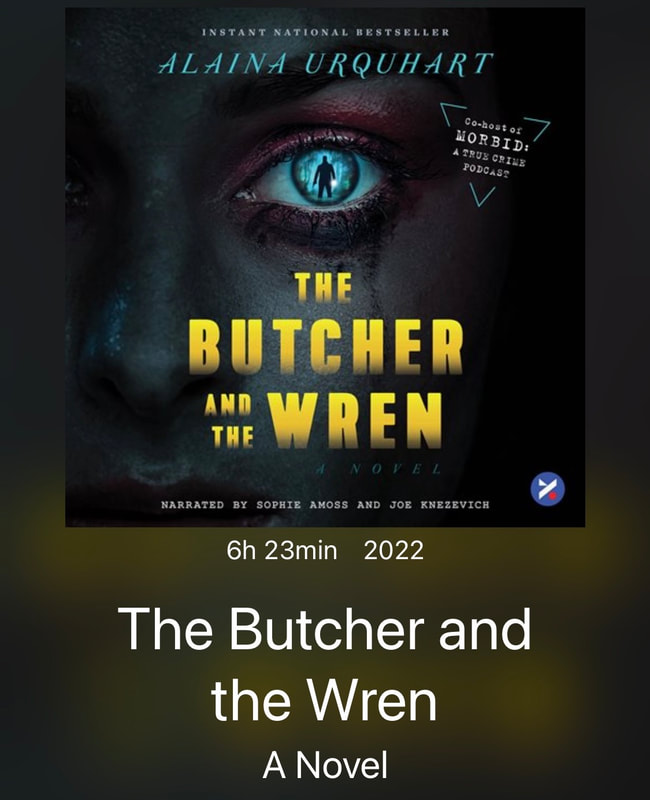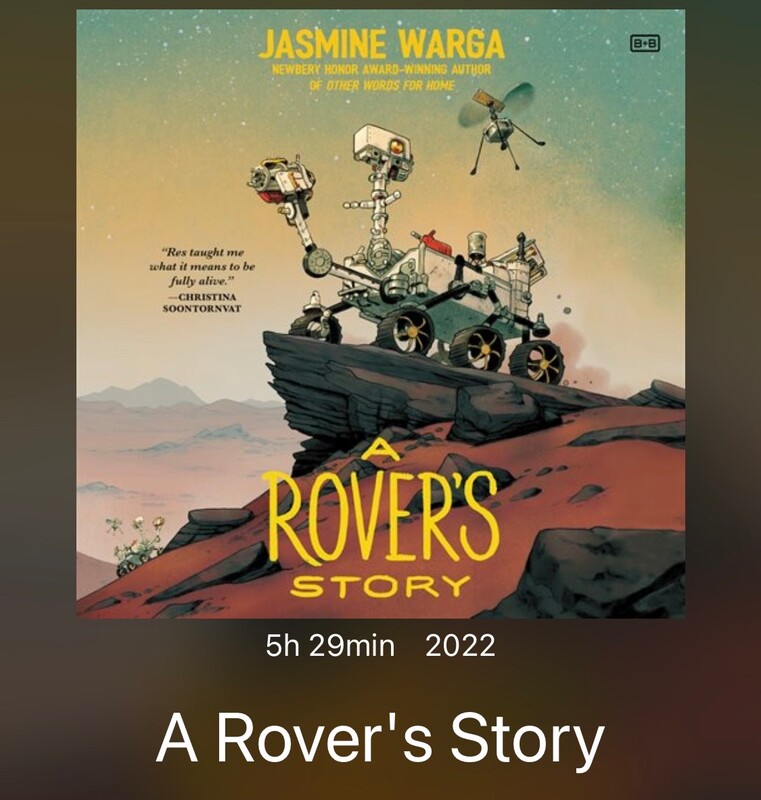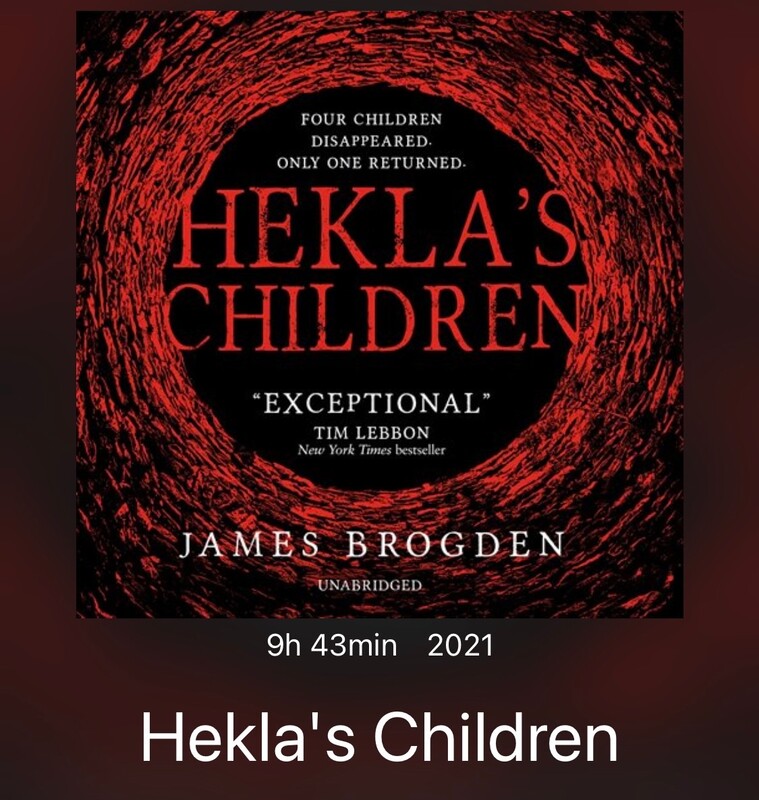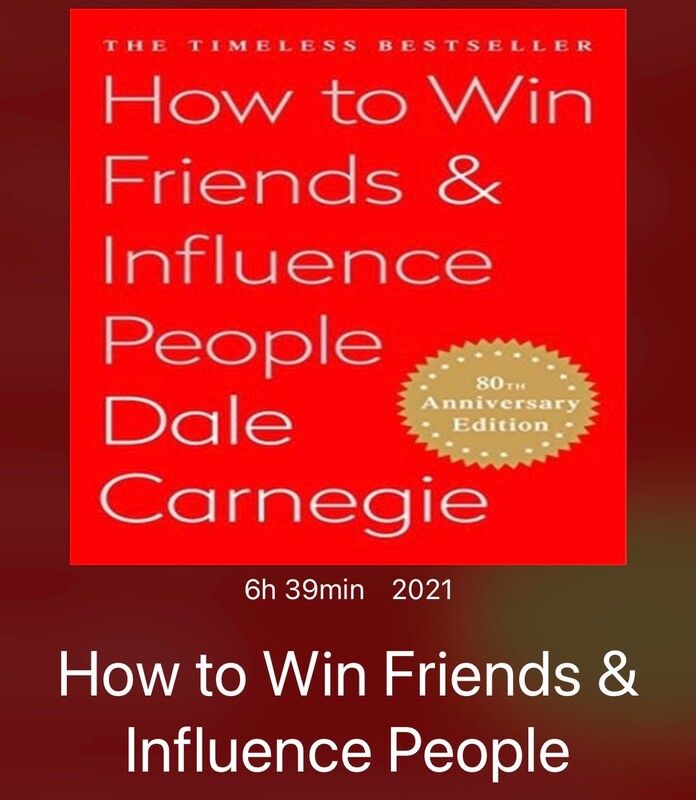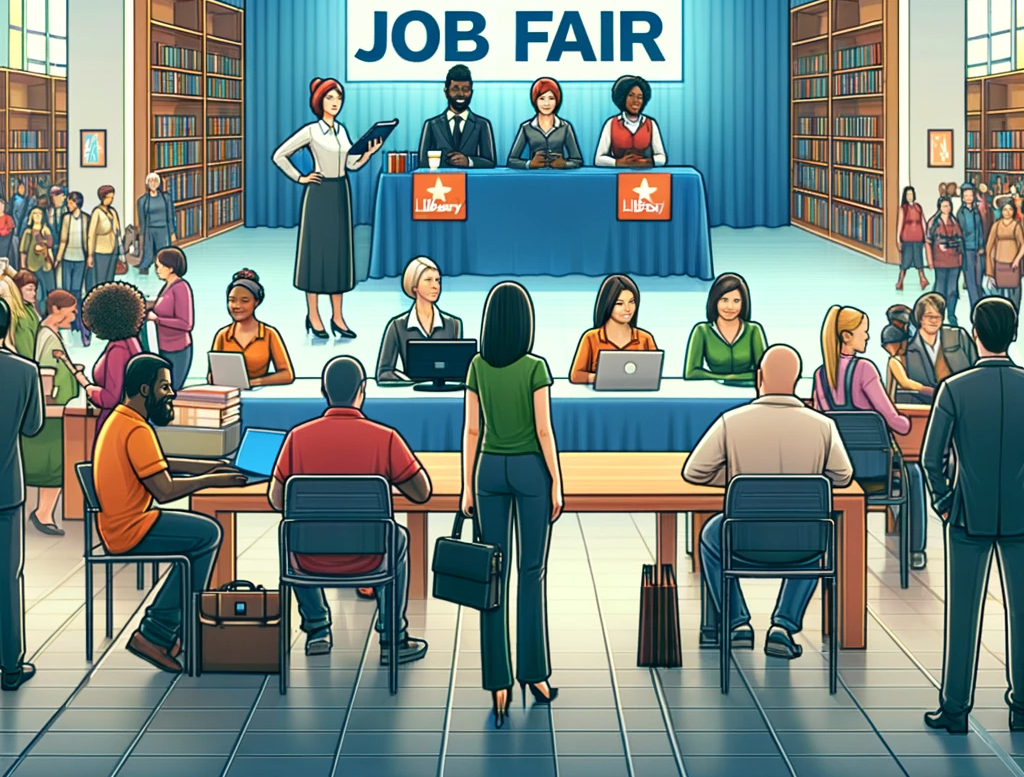|
Over the past month and a half, I've been on quite the journey, racking up nearly 8000 km behind the wheel moving back to Manitoba and celebrating Christmas with family. This long stretch of solo driving provided the perfect opportunity for immersing myself in a rich tapestry of podcasts, music, and, most notably, audiobooks. During this period, I started and finished seven audiobooks, all through the Hoopla app. What sets Hoopla apart, and something I can't help but praise, is its instant, hold-free access to a vast library, making it incredibly convenient for spontaneous listening decisions. It can be very frustrating when you finally decide on your next listen, but find it ensnared in waitlists or hampered by limited availability (e.g. no concurrent checkouts). Additionally, Hoopla enables users to download audiobooks directly to their device. This means I didn't have to worry about using up data or losing entertainment in the vast stretches of Northern Ontario where data and wifi are as scarce as traffic lights. Thanks to Hoopla, what could have been hours of boring monotony transformed into enthralling escapades across the realms of fiction and non-fiction, making every kilometer an adventure. Below are the seven audiobooks I enjoyed, accompanied by my ratings and reviews from GoodReads. ‘Dogs of War’ by Adrian Tchaikovsky - 5/5Adrian Tchaikovsky's 'Dogs of War' is a standout science fiction novel that brilliantly combines exciting adventure with deep philosophical themes. Centring on bioforms, genetically engineered animals designed for combat, the story delves into their struggle for identity and place in society. Tchaikovsky skillfully explores the ethical implications of biotechnology in warfare, challenging readers to consider the consciousness and moral standing of these beings. Both fun and intellectually engaging, 'Dogs of War' is a compelling read for those interested in the intersection of advanced science and societal impact. ‘Double Star’ by Robert A. Heinlein - 4/5'Double Star' by Robert A. Heinlein is a captivating science fiction novel. The story revolves around an actor's intricate task of impersonating a prominent politician. The politician’s personal pilot’s attitude and voice (in the audiobook version) reminds me a bit of Han Solo. Heinlein's writing skillfully weaves political intrigue with an exploration of identity and duty in an interstellar context that keeps the reader engaged from start to finish. ’Norse Mythology’ by Neil Gaiman - 5/5In 'Norse Mythology', Neil Gaiman skillfully brings ancient Norse tales and legends to a modern audience, offering an accessible and enthralling experience. As someone who shares Gaiman's love for Norse mythology, this book struck a familiar chord and brought back cherished memories of my youth spent creating home videos of Norse myths with family and friends. Filming with an old camcorder in backyards and local parks, we had a ton of fun and brought these timeless stories to life, just as Gaiman does with his vivid storytelling. I recommend this book for both enthusiasts and newcomers to Norse mythology. ‘The Butcher and the Wren’ by Alaina Urquhart - 4/5'The Butcher and the Wren' by Alaina Urquhart is a riveting debut that weaves the dueling perspectives of a cunning serial killer and an astute medical examiner into a chilling, gripping Louisiana bayou thriller. ‘A Rover’s Story’ by Jasmine Warga - 4/5‘A Rover's Story’ by Jasmine Warga is a charming tale that intertwines the adventures of Resilience, a personified Mars rover, and Sophie, a girl whose mother contributed to the rover's creation. Inspired by real-life rovers Curiosity and Perseverance, the novel blends scientific facts with imaginative storytelling. Through letters to Resilience, Sophie's narrative adds a personal touch, enhancing the emotional dimension of the story for readers. This novel is an engaging, educational journey into space exploration. ‘Hekla’s Children’ by James Brogden - 3/5‘Hekla's Children’ by James Brogden is a mixed experience. Its strengths lie in the imaginative world of Un and the compelling depiction of the monster Afaugh. However, the book suffers from inconsistent pacing and narrative engagement. While some characters are believable, others act nonsensically, weakening overall engagement. I wish there was deeper exploration and comparison between the fantastical world of Un and the real Bronze Age. Overall, it's a journey with high points and notable flaws, suitable as an audiobook during a long drive. ‘How to Win Friends and Influence People’ by Dale Carnegie - 4/5Dale Carnegie's 'How to Win Friends and Influence People' is an insightful book that imparts various principles on interpersonal relations and influence. Through engaging narratives, historical references, and repeated themes, the book provides readers with the following key strategies: Fundamental Techniques in Handling People
Six Ways to Make People Like You
How to Win People to Your Way of Thinking
Be a Leader: How to Change People Without Giving Offence or Arousing Resentment
As my road trip adventures draw to a close, I’m curious about your long-drive entertainment choices. How do you keep engaged and entertained on the road? Have you recently lost yourself in an audiobook on a long drive? What platforms do you use? Whether it's Hoopla, Audible, or any other app, I'd love to hear about your experiences and discoveries. Share your favourite audiobook titles, the journeys they accompanied you on, and how they transformed your travel time. Let's exchange stories and perhaps find our next great listen in each other's recommendations.
0 Comments
The Art of Being Generous... and CriticalIn my public reviews, I confess to a dual nature: I lean towards generosity when I find redeeming qualities in a book, yet I'm equally forthright in my criticism if a book fails to capture my interest or feels incoherent. This approach is partly strategic, aiming to steer algorithms for better future suggestions, and partly communal, guiding readers towards literary gems and away from less engaging reads. As a result, my public reviews might seem a bit more polarized, accentuating the positive or negative aspects more distinctly. The Role of EngagementEngagement is key in my rating system. A book that consistently holds my attention usually earns a higher rating. If, however, I find my mind wandering due to weak plot development, lack of relatability, poorly written characters, or excessive detail, it tends to lower the book's rating. Audiobooks, which I often enjoy on road trips, have a slightly different criterion. They need to be engaging enough to keep me focused, yet accessible enough to allow for intermittent attention. That way I can smoothly re-enter a story after brief distractions. The ideal audiobook is concise and captivating, preferably under 12 hours, with around 6 hours being the sweet spot. This length allows for a thorough story that can typically be consumed in 1-3 sittings, making it perfect for road trips. Exceptional audiobooks I've already read and loved can extend beyond this limit as they allow for easy re-engagement due to prior knowledge of the story. Redundancy and Relevance in Non-FictionI approach non-fiction with a critical eye. Books that are repetitive or drift off-topic receive lower ratings. However, those that align with my current interests, delve deep into topics, and assume some level of pre-existing knowledge are highly favoured. Book Clubs and Gifted Books
The 3-5 Star SpectrumMost of my ratings fall between 3 to 5 stars, as I rarely finish books that don't resonate with me. Here's my breakdown:
The 1-2 Star Range
The Exceptional 5-Star Plus
Your Thoughts?Now, I turn to you, fellow readers. How do you rate books on Goodreads or other platforms? Do you review differently in public compared to your private musings? Is there a special tier in your heart for books that transcend the 5-star limit? I'm eager to hear about your rating philosophies and how they shape your reading journey. Share your experiences and recommendations in the comments below. Happy reading!
Welcome to the sixth and final week of my series on enhancing public library services for individuals experiencing homelessness. Today, we delve into the critical role of community collaboration. No library operates in isolation. Developing partnerships with local shelters, social services, and other community organizations is essential. These collaborations not only extend the library’s reach but also enrich its services and cement its role within the community. Understanding the Value of Partnerships
Identifying Potential Partners
Generated with DALL·E. Building Effective Partnerships
Collaborative Programs and Services
Generated with DALL·E. Measuring Impact
Celebrating Successes and Sharing Stories
As we close this series, it's clear that community collaboration is more than just a strategy; it's a necessity for public libraries aiming to effectively serve all community members, especially those experiencing homelessness. By forging strong, mutually beneficial partnerships, libraries can enhance their services and play a pivotal role in the community, building bridges that extend far beyond their walls.
Welcome to week five of my series on enhancing public library services for patrons experiencing homelessness. In the realm of public libraries, the well-being and empowerment of library staff is paramount. This blog post discusses the importance of robust training programs, support systems, and feedback mechanisms, all aimed at equipping library staff with the necessary tools and confidence to maintain a calm and inclusive library atmosphere. Comprehensive Training Programs
Build Robust Support Systems
Generated with DALL·E. Effective Feedback Mechanisms
Foster a Culture of Continuous Learning
Recognize and Reward Efforts
Empowering library staff through comprehensive training, robust support systems, effective feedback mechanisms, and recognition of their efforts, not only enhances their professional skills but also nurtures their well-being and improves job satisfaction. This holistic approach ensures the library remains a place of calm, inclusion, and effective service, where both staff and patrons feel valued and understood. Let's continue to invest in our team, the heart of our library, to make a meaningful impact in the lives of all who walk through our doors.
Libraries, as public spaces, are not immune to conflicts. This blog post expands our discussion on enhancing services for individuals experiencing homelessness by focusing on de-escalation techniques. De-escalation techniques are strategies used to reduce the intensity of a conflict or potentially volatile situation. They involve calming the situation, ensuring safety, and finding a peaceful resolution. These techniques assist in maintaining a peaceful and respectful environment. Generated with DALL·E. Understanding the Root of Conflict
Effective Communication Skills
Non-Threatening Body Language
Solution-Oriented Approach
Knowing When to Seek Help
Photo by SHVETS production from Pexels. Post-Conflict Resolution
By effectively applying de-escalation techniques and fostering a supportive environment, libraries can create a more harmonious and safe space for all patrons, including those experiencing homelessness. These strategies help in ensuring our libraries remain welcoming and peaceful havens for everyone in the community.
|
Christopher DesrochersModern Day Renaissance Man Categories
All
Archives
April 2024
|
